General description
Serine palmitoyltransferase 3 (EC 2.3.1.50; UniProt Q9NUV7; also known as LCB 3, LCB2b, Long chain base biosynthesis protein 2b, Long chain base biosynthesis protein 3, Serine-palmitoyl-CoA transferase 3, SPT 3) is encoded by the SPTLC3 (also known as C20orf38, SPTLC2L) gene (Gene ID 55304) in human. Serine palmitoyltransferase (SPT) is a pyridoxal 5′-phosphate (PLP)-dependent enzyme that catalyses the first step of de novo sphingolipids (SLs) biosynthesis, namely the condensation of L-serine with palmitoyl coenzyme-A to generate 3-ketodehydrosphinganine (KDS) that forms the sphingoid base backbone of all SLs. The core human SPT homoenzyme is a membrane-bound heterodimer composed of an hLCB1 (SPTLC1) subunit together with either an hLCB2a (SPTLC2) or an hLCB2b (SPTLC3) subunit. The hLCB1/hLCB2 heterodimer contains a single active site composed of residues from both subunits. hLCB2a and hLCB2b share 68% sequence identity, with hLCB2b being the isotype that is predominantly expressed in the placenta and prefers shorter chain acyl-CoAs (C12 and C14) to generate short-chain SLs. In addition, two human small subunits (ssSPTa and ssSPTb) have been identified and found to maximize the catalytic activity and to confer the acyl-CoA substrate chain-length specificity of the hLCB1/hLCB2 core enzyme. Mutations in hLCB1 and hLCB2a are found in patients with hereditary sensory and autonomic neuropathy type I (HSAN1), an inherited disorder that affects sensory and autonomic neurons due to neurotoxic deoxysphingolipids formation as a result of substrate promiscuity of the mutated SPT enzyme.
Specificity
Target-specificity of this antiserum was verified by negative blotting using pre-immune serum and by target band blocking using immunogen peptides (Hornemann, T., et al. (2006). J. Biol. Chem. 281(49):37275-37281). Expected to react with both spliced isoforms of human Serine palmitoyltransferase 3/SPTLC3 reported by UniProt (Q9NUV7).
Immunogen
A mixture of two linear peptides corresponding to sequences near the N- and C-terminal ends of human SPTLC3.
Application
Detect SPTLC3 using this rabbit polyclonal Anti-SPTLC3 Antibody, Cat. No. ABS1640, validated for use in Western Blotting.
Research Category
Signaling
Western Blotting Analysis: The purified polyclonal antibody was used to detect the presence of SPTLC2 in SPTLC1 and SPTLC2 immunoprecipiates from human placenta tissue homogenate (Hornemann, T., et al. (2007). Biochem. J. 405(1):157-164).
Western Blotting Analysis: The purified polyclonal antibody was used to detect the endogenous SPTLC3 in human cell lysates (HepG2, JAR, JEG3) and human placenta tissue homogenate, as well as exogenously expressed SPTLC3 in transfected HEK293 cells (Hornemann, T., et al. (2007). Biochem. J. 405(1):157-164; Hornemann, T., et al. (2006). J. Biol. Chem. 281(49):37275-37281).
Quality
Evaluated by Western Blotting in human placenta tissue lysate.
Western Blotting Analysis: A 1:1,000 dilution of this antibody detected SPTLC3 in 10 µg of human placenta tissue lysate.
Target description
~52 kDa observed. 62.05 kDa (isoform 1) and 19.63 kDa (isoform 2) calculated. The smaller-than-calculated band size is consistent with that reported in the literature (Hornemann, T., et al. (2007). Biochem. J. 405(1):157-164; Hornemann, T., et al. (2006). J. Biol. Chem. 281(49):37275-37281). Uncharacterized bands may be observed in some lysate(s).
Physical form
Format: Unpurified
Rabbit polyclonal antibody serum with 0.05% sodium azide.
Unpurified.
Storage and Stability
Stable for 1 year at -20°C from date of receipt.
Handling Recommendations: Upon receipt and prior to removing the cap, centrifuge the vial and gently mix the solution. Aliquot into microcentrifuge tubes and store at -20°C. Avoid repeated freeze/thaw cycles, which may damage IgG and affect product performance.
Other Notes
Concentration: Please refer to lot specific datasheet.
Disclaimer
Unless otherwise stated in our catalog or other company documentation accompanying the product(s), our products are intended for research use only and are not to be used for any other purpose, which includes but is not limited to, unauthorized commercial uses, in vitro diagnostic uses, ex vivo or in vivo therapeutic uses or any type of consumption or application to humans or animals.
biological source: rabbit. Quality Level: 100. antibody form: unpurified. antibody product type: primary antibodies. clone: polyclonal. species reactivity: human. species reactivity (predicted by homology): nonhuman primates (based on 100% sequence homology). technique(s): western blot: suitable. NCBI accession no.: NP_060797. UniProt accession no.: Q9NUV7. shipped in: ambient. target post-translational modification: unmodified. Gene Information: human ... SPTLC3(55304). Storage Class Code: 12 - Non Combustible Liquids. WGK: WGK 1. Flash Point(F): Not applicable. Flash Point(C): Not applicable.- UPC:
- 41116126
- Condition:
- New
- Weight:
- 1.00 Ounces
- HazmatClass:
- No
- WeightUOM:
- LB
- MPN:
- ABS1640












